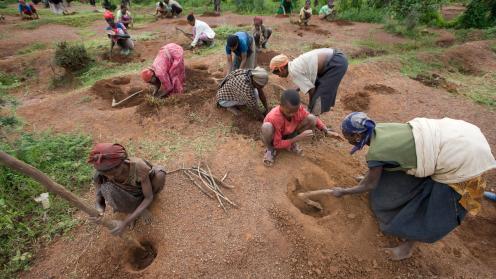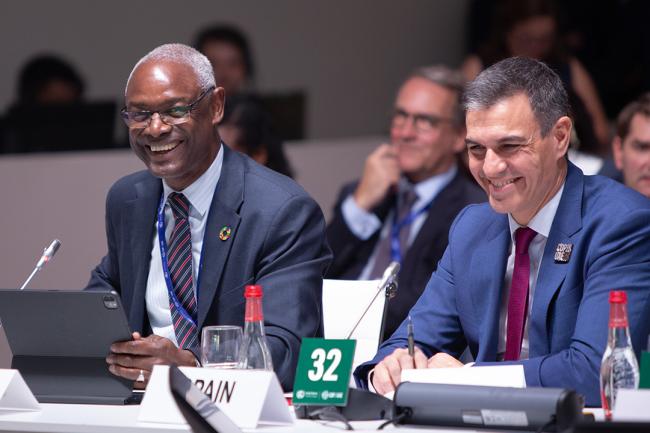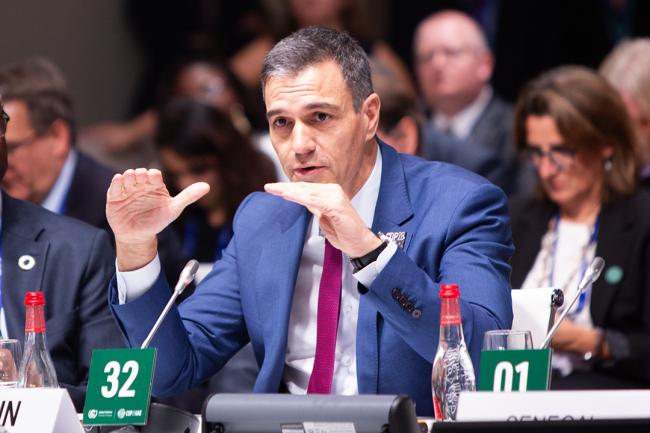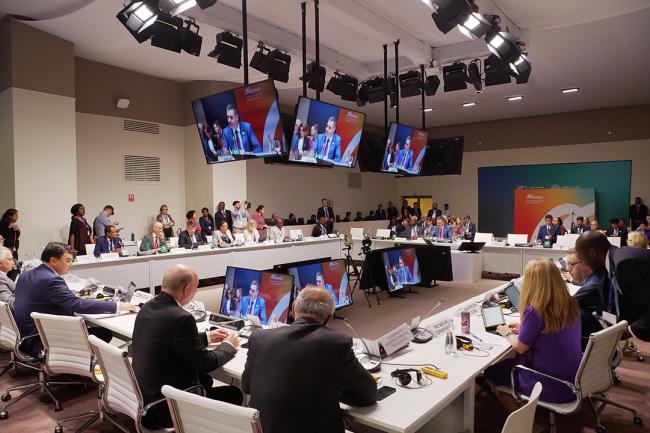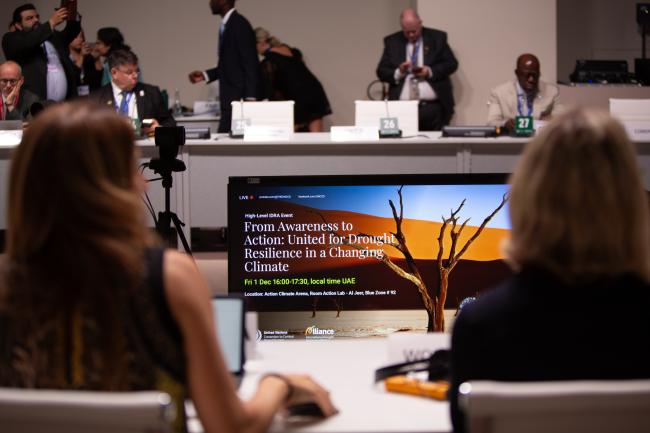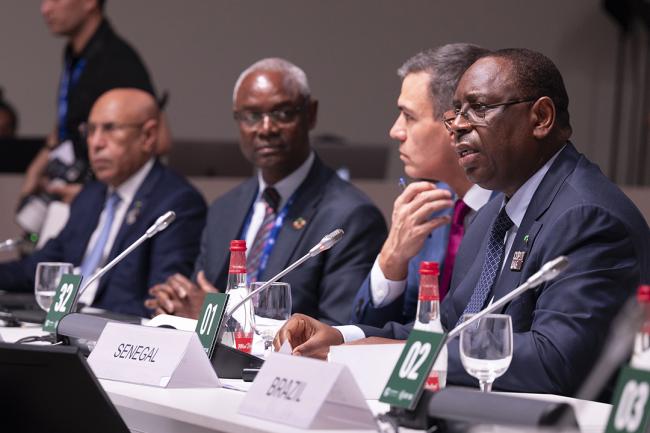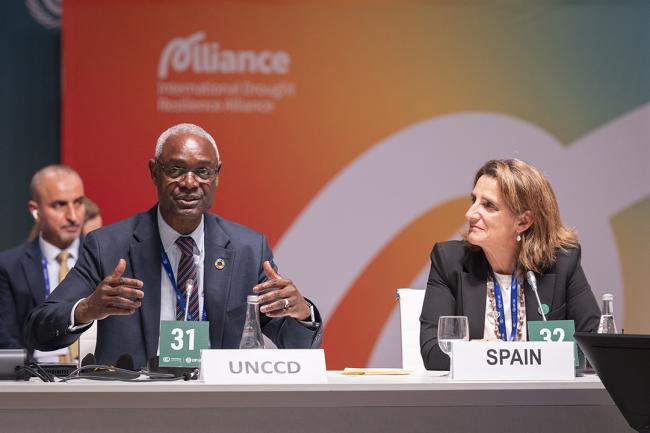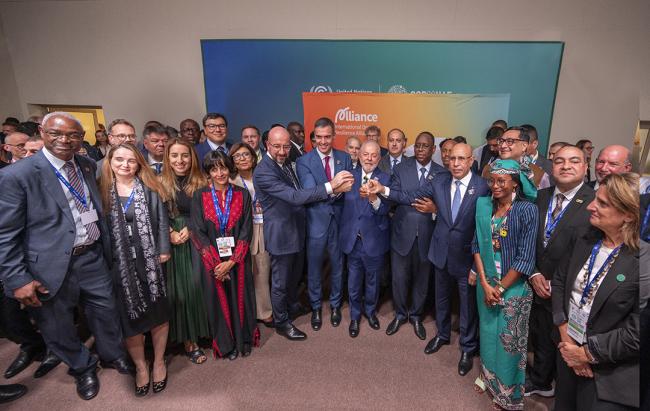About
The Prime Minister of Spain, President of Senegal, and over 60 countries and organizations united to celebrate the one-year anniversary of the International Drought Resilience Alliance's and global cooperation to combat drought and desertification.
Around the world, droughts are becoming increasingly common due to rising global temperatures, with serious impacts, leading to crop failures, famine, and malnutrition, as well as posing significant challenges to sustainable development, global peace, and security. This high-level roundtable celebrated the one-year anniversary of the International Drought Resilience Alliance's (IDRA), launched at the COP 27 Leaders’ Summit under the leadership of Macky Sall, President of Senegal, and Pedro Sánchez, Prime Minister of Spain.
In opening remarks, Prime Minister of Spain Pedro Sánchez reiterated his country’s commitment to IDRA, noting the environmental and social effects of droughts in the Spanish regions of, among others, Catalonia and Andalusia. In the first year of IDRA, he added, concrete results were achieved across four dimensions. First, the Alliance received new political support, welcoming six countries—Australia, Colombia, Italy, the Union of the Comoros, Uruguay, and Jordan. Second, it has begun building a common framework for action to design new projects. Third, it is accelerating knowledge sharing with new publications such as the Global Drought Snapshot 2023 Report, launched at COP 28 by the UN Convention to Combat Desertification (UNCCD) in collaboration with IDRA; and, fourth, it is developing new financial mechanisms to leverage funds. He concluded by announcing that Spain would host a high-level meeting on droughts in 2024.
Ibrahim Thiaw, UNCCD Executive Secretary, pointed to the changing nature of droughts, noting that while they were once thought to affect only some regions, they are now a global threat that affects livelihoods and ecosystems, as well as creates displacements and conflicts. He underscored the need for leadership and political will at the UNCCD COP 16, due to take place in Saudi Arabia in December 2024.
Inger Andersen, Executive Director, UN Environment Programme (UNEP), highlighted the consequences of droughts across the world, including in her home country of Denmark, as well as in African countries, such as Somalia and Kenya. She underscored the intersectionality between conflicts and droughts, noting that one can exacerbate the other.
Jennifer Morris, Chief Executive Officer, The Nature Conservancy, emphasized our improper use of freshwater, noting that water is an intersectional issue that impacts agriculture and food production. After highlighting a project in Kenya that is supporting 50,000 farmers to reduce their water use in crop production, Morris introduced Hindou Oumarou Ibrahim, who spoke on behalf of the Association for Indigenous Women and Peoples of Chad. Ibrahim noted the ripple effects of drought, which has doubled the cost of food and produced more household debt. She said that the Alliance must follow up on commitments with financial support for communities.
Charles Michel, President of the European Council, noted that by 2050 the effects of climate change-related flooding will affect three out of every four people across the globe, but expressed hope that “we can change things, change the paradigm” by acting quickly and catalyzing investments in drought resilience at every level. He stressed that no country can overcome the consequences of climate change and droughts alone, and thus working collaboratively is necessary.
Mohamed Ould Ghazouani, President of Mauritania, focused on how droughts affect soil productivity, leading to negative economic impacts that amplify food insecurity in rural areas. He highlighted the need for a concrete framework that will reduce the vulnerability of countries facing drought and desertification. He noted that IDRA is a useful tool to converge collective efforts for the restoration and sustainable management of soil and suggested that it concentrate its efforts on reinforcing the capacities of youth and young women.
Macky Sall, President of Senegal, emphasized that “desertification does not know any borders,” noting how droughts affect 1.84 billion people throughout the world and that 85% of these people live in low and middle income countries. He stressed collaborating through concrete action, namely through the transfer of technologies, sharing of experiences, and exchange of best practices. He urged against marginalizing the UNCCD among other UN Conventions and said we should agree on an “energetic transition that is just, equitable, and takes into consideration the specific needs of Africa.”
In a segment chaired by Teresa Ribera, Minister for Ecological Transition and Demographic Challenge of Spain, Slovenia, Uzbekistan, the United States, Colombia, Jordan, the World Bank, the Commonwealth, the International Union for the Conservation of Nature (IUCN) and the Adaptation Fund expressed support for the IDRA.
Organizers: UNCCD
Contact: Xenya Scanlon I xscanlon@unccd.int
For more information: unccd.int/
To receive free coverage of global environmental events delivered to your inbox, subscribe to the ENB Update newsletter.
All ENB photos are free to use with attribution. For this COP 28 side event, please use: Photo by IISD/ENB | Angeles Estrada Vigil
